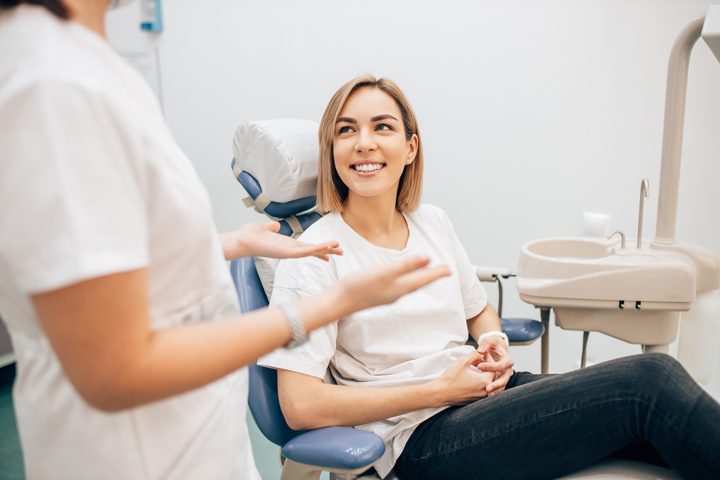Avoiding Opioid Use at the Dentist

Something to Consider
If you go to the dentist for your regularly scheduled appointments, you probably don’t think twice about using medications prescribed by your dentist. Yet, for those in recovery, some of these medications can put them at risk of relapse. Here’s an example.
Wisdom teeth commonly arrive during a person’s late teens and early 20s. Because wisdom teeth often overcrowd other teeth or become infected, they often need to be extracted. To help patients manage the post-extraction pain, dentists may prescribe an opioid-based medication. For young adults, dental procedures are often their first exposure to opioid medications.
The American Academy of Pediatrics found that when prescription opioids are used for those in 12th grade or younger, their chances of having a future opioid use disorder grows by 33 percent. The study also found that up to 80 percent of those who are between the ages of 13 and 30 who had their wisdom teeth removed filled the opioid prescription written for them as a pain treatment. More so, those who filled those prescriptions were three times more likely to continue to use opioids in some form a full year later.
How You Can Treat Pain
No one wants to deal with dental pain. In situations like this where the pain is so significant, it can be even harder to resist using that prescription. Yet, another study, reported by the Journal of the American Dental Association found that the use of over-the-counter pain relievers, including products such as acetaminophen and ibuprofen, were just as effective at managing the same type of pain as prescription opioids were. In other words, non-habit forming pain medications may be just as effective, reducing the need to turn to opioids.
What Should You Do if You Are Heading to the Dentist?
The good news is that many dentists have listened to the opioid epidemic reports and have taken steps to stop prescribing opioids whenever possible. In some cases, such as in situations where the pain is very high due to infection or complications, opioids may still be prescribed. However, it is up to you to be educated. Here are a few things to talk to your dentist about before having major dental work.
- What type of medications will be used as general anesthesia and numbing during the procedure? If there are medications being used, are they habit-forming?
- Will there be a prescription after the procedure? If so, what types of medications will be used?
- If opioids are a typical prescription, what other options and non-habit forming alternatives may be available to you?
- What can you do to prevent complications during the procedure to limit your need for pain management later?
- Will over-the-counter pain medications be enough to control the pain and discomfort of the procedure or treatment?
Being open like this allows you to gain insight into your dentist’s willingness to protect you from opioid use. That’s important for your future and, if you are a parent bringing your son or daughter in for these procedures, that helps you continue to protect your child.
Are You Using Prescription Opioids?
For those who are using prescription painkillers, it’s important to recognize the detrimental outcome of continuing this use. Because these drugs carry a high risk of severe addiction, you may be at an increased risk of using illicit substances if your prescription runs out. More so, there is a constant risk of overdose for those using even small amounts of some painkillers.
There is help available if you believe you may have an opioid addiction. If you’ve started using drugs like this, our team may recommend that you enter into a detoxification program to help rid your body of the toxins. We then may recommend inpatient treatment if you have a moderate to severe level of addiction or dependence.







